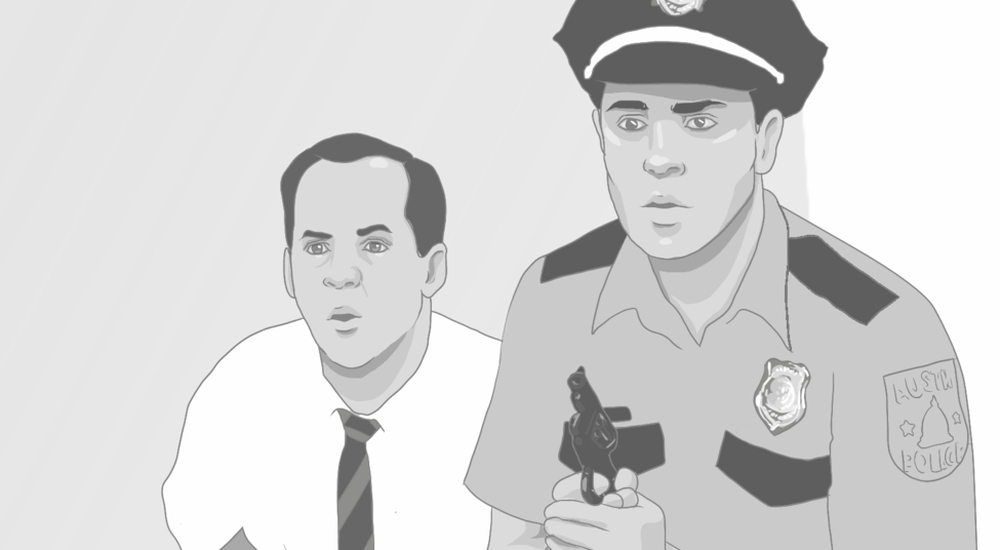A harrowing combination of archival footage, interviews and animation, Tower relives Austin’s worst day.
On Aug. 1, 1966, Charles Whitman killed his wife and mother, then took to the Tower at the University of Texas and shot at random people for 90 minutes, killing 14 and wounding 32 others. At the time, it was the worst mass shooting in the United States.
What keeps Tower from being redundant or exploitative is its focus on the victims. Using transcripts from older interviews as well as those recorded specifically for this project, director Keith Maitland filmed actors reading the words of the survivors, then animated the footage to stage surreal reenactments.
Part of this was born of necessity: UT wouldn’t let them shoot full reenactments on campus. But it forced Maitland to get creative while still honoring the victims.
Occasionally, the animation gets a little too cutesy, at least when it’s superimposed on archival footage. But at its best, it recalls both Richard Linklater’s existential Waking Life and Ari Folman’s harrowing Waltz with Bashir.
Maitland’s unconventional choices always serve the film, particularly in its choice of music. Its mix of pop songs and score always match the mood, even when they’re unexpected. The emotional climax of the film is set to Debussy’s “Clair de Lune,” which was one of the murderer’s favorite pieces. According to the director, it was his way of acknowledging the brief respite Whitman had from what tormented him.
Though cut like a thriller, Tower never cheapens any of the complex emotions of that day. There are genuine moments of humor and humanity to be found among all the horror and chaos.
No matter how much UT would like to forget it, Tower reminds us of the people we should remember from that day. Media has always sought to focus on the killers who perpetrate such barbaric acts of violence, but this movie rights that wrong, honoring the everyday heroes who kept it from being much worse.

